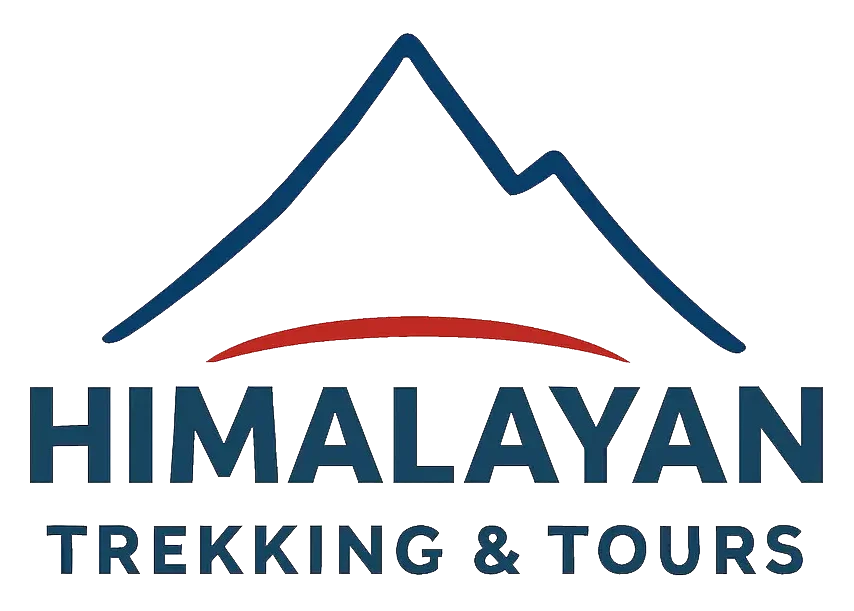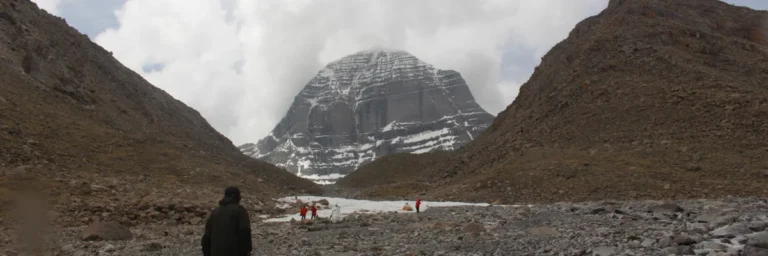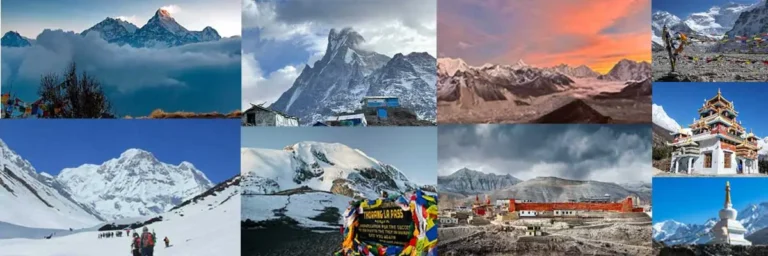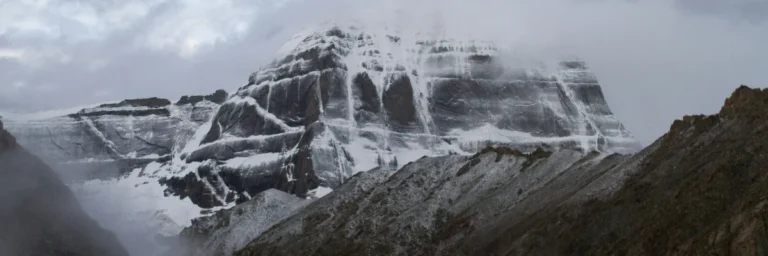Tour in Nepal FAQs: Nepal is a land of great mountains, rich cultural heritage, and warm hospitality. Nepal attracts travelers from all over the world. Whether you are planning to trek the Himalayas or explore ancient temples, or experience the vibrant local festivals, it is very essential to be well-prepared for your journey. So, before you hop on a plane, let’s get you prepped!
This guide will answer all your burning questions, from the best time to visit Nepal to visa requirements and even helpful trekking tips. Imagine yourself sipping yak butter tea with welcoming locals or celebrating a colorful festival – this guide is your key to understanding the country and having an amazing experience in Nepal.
Tour in Nepal FAQs, Frequently Asked Questions
1. What is the best time to visit Nepal?
- The best time to visit Nepal is during the months of October and November. During these months, you can experience Nepal’s major festivals, Dashain and Tihar. The weather is also ideal, with clear skies and comfortable temperatures. February to May is another great period for a visit, offering pleasant weather and beautiful blooming flowers. Other seasons might not be as favorable for touring Nepal.
2. Where can I get a Nepal visa?
- You can obtain a Nepal visa at a consulate in your home country by submitting two passport-sized photographs and the visa fee.
3. Is Nepal an inexpensive country to visit?
- Yes, Nepal is relatively inexpensive compared to many other countries. Accommodation, food, and transportation costs are generally lower, making it a budget-friendly destination for travelers.
4. Is Nepal safe for women travelers?
- Yes, Nepal is generally safe for women travelers. The Nepalese culture values guests highly, and you get to see solo female travelers traveling in the country. However, like in any country, it is always best to take standard safety precaution, know the emergency number of the country and stay safe.
5. Is Nepal safe after the 2015 earthquake?
- Yes, Nepal has made significant progress in rebuilding and improving infrastructure since the 2015 earthquake. Many historical and religious sites have been renovated, and trekking and tour areas are well-maintained and safe for visitors.
6. Can I stay in touch with family and friends while in Nepal?
- Yes, absolutely. Staying in touch is easy in Nepal. You can buy a local SIM card from Namaste or Ncell for internet and phone calls. Wi-Fi is also available in many hotels and cafes/restaurants.
7. What kind of hotels are available in Nepal?
- In major cities like Kathmandu, Pokhara, and Chitwan etc., you can find a good range of hotels from budget to luxury. In remote villages, accommodations are simpler, but you can enjoy traditional Nepalese hospitality and food at lower prices.
2. Do I need a visa to visit Nepal?
- Yes, most visitors need a visa to enter Nepal. You can obtain a visa on arrival at the airport in Kathmandu or apply for one at a Nepalese embassy or consulate.
3. What are the main attractions in Nepal?
- Major attractions include Mount Everest, Kathmandu Valley, Lumbini (birthplace of Buddha), Chitwan National Park, and Pokhara.
4. Is Nepal safe for tourists?
- Nepal is generally safe for tourists. However, it is always good to stay aware of your surroundings and follow local advice.
5. What is the local currency, and can I use credit cards?
- The local currency is the Nepalese Rupee (NPR). Credit cards are accepted in major hotels, restaurants, and shops in big cities, but it is advisable to carry cash for smaller establishments and rural areas.
6. What language is spoken in Nepal?
- The official language is Nepali. English is also widely understood in tourist areas and by those in the tourism industry.
7. Do I need any vaccinations before traveling to Nepal?
- It is recommended to have vaccinations for hepatitis A and B, typhoid, and tetanus. Consult with your doctor for personalized advice before your visit.
8. What kind of clothing should I pack?
The clothing you pack depends on the season and the areas you plan to visit in Nepal. Here’s a general guideline:
- Cold Months (October to March): Pack warm layers, including thermal wear, a down jacket, gloves, and a hat. In the mountains, especially at higher altitudes, temperatures can drop significantly, so prepare for cold conditions.
- Warm Months (April to September): Lighter clothing such as t-shirts, shorts, and breathable fabrics are suitable, especially in the lowlands and cities where temperatures can be warmer during the day. Evenings might still be cool, so having a light jacket or sweater is advisable.
- Trekking in the Mountains: Regardless of the season, bring sturdy hiking boots, moisture-wicking socks, and comfortable trekking pants. Layers are crucial as temperatures can vary widely throughout the day, from chilly mornings to warmer afternoons.
- Cities and Cultural Sites: Modest clothing that covers shoulders and knees is respectful when visiting temples and religious sites. Comfortable walking shoes are recommended for exploring cities like Kathmandu and Pokhara.
By packing a mix of clothing suitable for varying temperatures and activities, you’ll be well-prepared to enjoy your Nepal adventure.
9. How do I get around in Nepal?
- You can get around by domestic flights, buses, taxis, and private cars. In cities, rickshaws and motorbikes are also common.
10. Is trekking in Nepal difficult?
- Trekking difficulty varies from easy to very challenging. There are routes suitable for all fitness levels. Popular treks like the Annapurna Circuit and Everest Base Camp can be challenging but are manageable with preparation and the right gear.
11. Can I use my mobile phone in Nepal?
- Yes, you can use your mobile phone. Local SIM cards are available for purchase, and there are many places offering Wi-Fi, especially in tourist areas.
12. What should I know about Nepalese culture?
- Nepalese culture is rich and diverse. Respect local customs, dress modestly, and be mindful of religious practices. Always ask permission before taking photos of people or religious sites.
13. How much should I tip in Nepal?
- Tipping is not mandatory but appreciated. In restaurants, a 10% tip is customary if a service charge is not included. For guides and porters, tipping is generally expected at the end of your trek or tour.
14. Are there any health concerns I should be aware of?
- Altitude sickness can be an issue in higher regions. Stay hydrated, acclimatize properly, and consult a doctor if you experience symptoms. Drink bottled or purified water to avoid waterborne illnesses.
15. How can I respect the environment while visiting Nepal?
- Practice responsible tourism by not littering, minimizing plastic use, respecting wildlife, and following marked trails during treks. Support local businesses and conservation efforts.
You may also like:
Send an Enquiry
Error: Contact form not found.
© 2026 - Himalayan Trekking and Tours (P) Ltd. All Rights Reserved.




